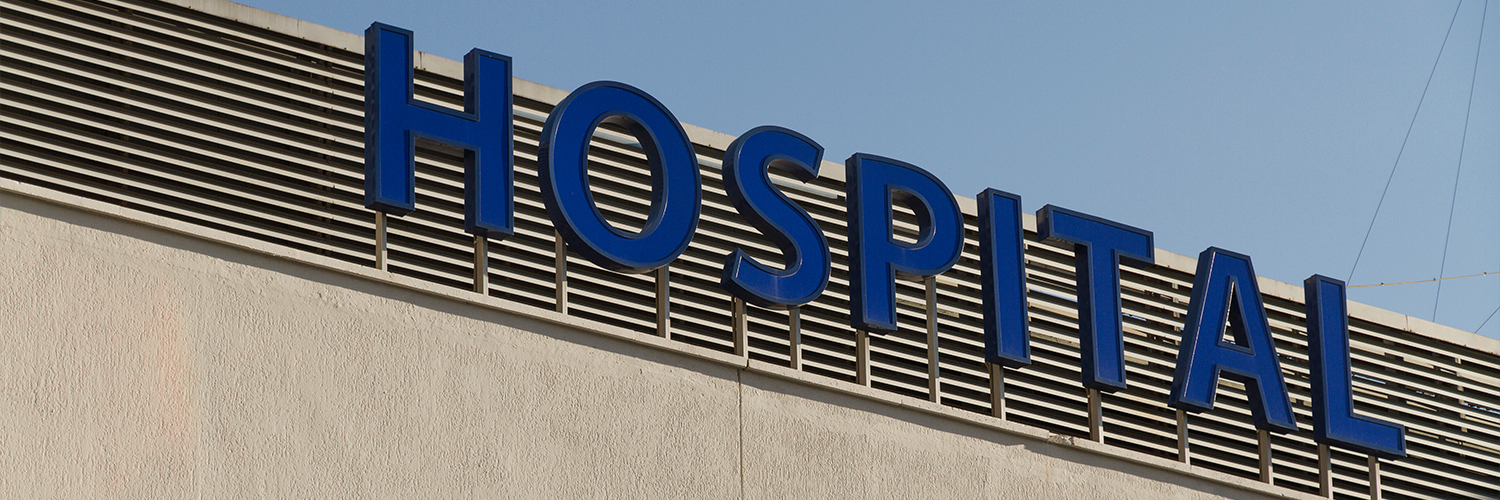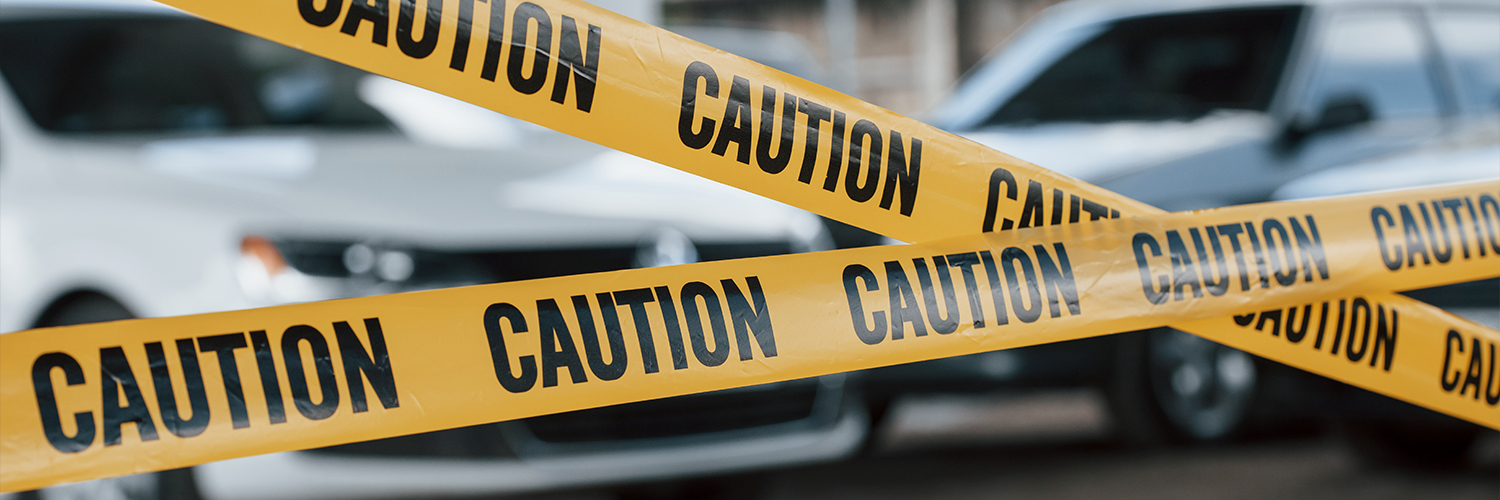Personal Injury News: Pick Of Last Month: September-2024
Judge Oks $600M Settlement for Ohio Train Derailment

A federal judge has approved a $600 million class-action settlement offered by Norfolk Southern Railroad to compensate individuals living within a 20-mile radius of the disastrous train derailment in East Palestine, Ohio, that occurred in February 2023.
The approval followed a hearing where lawyers for both the residents and the railroad argued that the settlement had strong support from the affected community. Of the approximately 55,000 claims filed, only 370 households and 47 businesses opted out of the settlement.
However, some residents voiced concerns about the settlement, fearing it was rushed and insufficient. They argued that it’s too soon to fully understand the potential long-term health risks associated with the derailment, particularly given inconsistent environmental test results from the Environmental Protection Agency (EPA). Additionally, they expressed frustration that their attorneys had not disclosed all the information gathered during their investigations, leading to uncertainty about the risks involved.
Objectors hoped the judge would require the plaintiff’s attorneys to release the test results their experts had conducted after the derailment. They also wanted more answers about a toxicologist who, during one of the town hall meetings held by the attorneys, downplayed the potential cancer risk, claiming he didn’t believe anyone would develop the disease. This angered residents, many of whom have reported unexplained health problems since the incident and have been consulting with doctors conducting studies to determine the health impacts. Health experts say it’s still too early to determine what those impacts might be.
“There was pressure to accept the deal,” one resident said, feeling that the attorneys were forcing people to agree to the settlement by telling them they would receive no compensation if they didn’t. Many residents felt they had no choice but to agree. With the judge’s approval, the settlement paves the way for payments to be distributed, with attorneys previously stating that they hoped to start sending checks before the end of the year.
As part of the settlement terms, any financial aid already received from the railroad will be deducted from the final payouts. This means that plaintiffs who had to relocate temporarily—paid for by the railroad—may not receive any additional compensation.
The settlement provides up to $70,000 per household for those who lived within two miles of the derailment site, plus up to $25,000 per person for any health problems. The farther a resident lived from the derailment, the lower the compensation, with some payments potentially dropping to just a few hundred dollars for those at the edge of the affected zone.
Despite objections, the plaintiffs' attorneys expressed their satisfaction with the settlement. “This outcome would not have been possible without the resilience and support of the East Palestine community and the broader class of impacted residents and business owners,” they said in a statement. “We look forward to beginning the distribution of funds in the coming weeks to help this community rebuild and move forward.”
The derailment, which occurred late on February 3, 2023, involved tank cars filled with hazardous chemicals that ruptured and caught fire just outside the small Ohio town on the border with Pennsylvania. A few days later, officials made the controversial decision to intentionally blow open five tank cars of vinyl chloride, a toxic plastic ingredient, fearing the cars would explode. This release and subsequent burn of chemicals fueled concerns among residents about long-term health risks.
In the months following the incident, Norfolk Southern has offered $108 million in assistance to the community and has covered the extensive cleanup costs, which have exceeded $1 billion. The railroad expressed its commitment to the community, saying in a statement, “We made a promise to make things right, and this is just one piece of that commitment. We remain dedicated to this community for the long haul and look forward to continuing our relationship with the Village as we work to help the area recover and thrive.”
Some residents, despite concerns, have accepted the settlement to avoid the uncertainty and challenge of facing the railroad’s legal team alone. One plaintiff explained that while the possibility of future health issues like cancer is concerning, the thought of going up against Norfolk Southern's lawyers individually was daunting. "It seems like everybody just wanted it to be over with, the attorneys and obviously Norfolk," she said.
She and her husband, who live in his childhood home just 175 yards from the derailment site, now face a difficult decision about whether to stay in the home or move somewhere else where they can feel safe and live more comfortably.
MGA Entertainment Ordered to Pay $71.5M in Infringement Case

Toy maker MGA Entertainment has been ordered to pay $71.5 million in damages for infringing on the name and likeness of the teen pop group OMG Girlz, following a decision by a federal jury.
This marks a victory for OMG Girlz in a lengthy intellectual property dispute with the California-based company, centered around MGA’s popular “L.O.L. Surprise! O.M.G.” dolls, which were found to bear similarities in name and style to the all-female music group.
The jury concluded that certain dolls in the line infringed on OMG Girlz’s "trade dress" and misappropriated the group's "name, likeness, and identity." As a result, jurors awarded the group, which includes a singer and rapper, $17.9 million in actual damages and an additional $53.6 million in punitive damages.
The legal battle began in 2020 when MGA sought a declaratory judgment that its “L.O.L. Surprise! O.M.G.” dolls did not violate any intellectual property rights of OMG Girlz, after receiving a cease-and-desist letter from the group. OMG Girlz subsequently filed counterclaims.
The first trial, held in January 2023, ended in a mistrial after barred testimony alleging cultural appropriation by MGA was introduced. A second trial initially sided with MGA, but the judge later granted OMG Girlz’s request for a retrial, leading to the recent verdict.
Snowmobiler Hits Parked Black Hawk, Awarded $3.3M

A federal judge has ruled that the U.S. government is primarily responsible for a nighttime collision in March 2019 between a snowmobiler and a parked Black Hawk helicopter, awarding the injured snowmobiler $3.3 million in damages.
The snowmobiler, who nearly died in the accident, struck the camouflaged helicopter that was parked on a snowmobile trail in Worthington, Massachusetts.
U.S. District judge found both parties at fault but placed 60% of the blame on the government for parking the helicopter on an active snowmobile trail without any safety precautions. The snowmobiler was found 40% responsible for speeding, wearing tinted goggles at night, and not operating his snowmobile safely.
The snowmobiler's legal team had initially sought $9.5 million to cover medical expenses, lost wages, and hold the military accountable for the crash. "We are grateful for the judge's thoughtful consideration of the complicated facts of this case," said his lawyer. "We believe justice was served, and the decision encourages public safety."
The accident occurred when a Black Hawk helicopter, flown from New York's Fort Drum to Massachusetts for night training, was parked on a trail used by snowmobilers. The crew had landed the helicopter on Albert Farms airfield, a rarely used airstrip, and left it unattended. The helicopter was camouflaged, and there were no lights or warning signs to indicate its presence. The judge noted that the government breached its duty of care by failing to take any steps to prevent the obvious risk posed by parking the camouflaged helicopter in a wooded area as night fell.
The snowmobiler, who had driven on the trail over 100 times before, was unaware that a helicopter was parked there. The night of the crash, he had been helping his mother fix a computer at her home and had consumed two beers with dinner before setting off to meet his brother on the trail. As he approached the helicopter in the dark, he noticed a reflection from his headlights but only realized it was a helicopter after colliding with it.
The snowmobiler suffered serious injuries, including a dozen broken ribs, a punctured lung, and severe internal bleeding, and had to be airlifted to a trauma center. Now 48 years old, he has been surviving on disability assistance and struggles with basic tasks such as putting on socks or pulling up his pants. He can no longer engage in activities like golfing or snowmobiling.
In addition to suing the government, the snowmobiler also filed a lawsuit against the owner of Albert Farms airfield, accusing the farm of granting permission for both snowmobiles and helicopters to use the same area. The snowmobiler settled with the farm's owner for an undisclosed sum. The U.S. government has 60 days to pay the damages or file an appeal.
Throughout the trial, the government argued that it could not be sued under the Federal Tort Claims Act, claiming the decision to park the helicopter was a policy matter. However, the judge disagreed, ruling that exceptions within the act allowed the case to proceed. The government also argued that the court lacked jurisdiction and that the helicopter crew was unaware they had landed on a snowmobile trail. Furthermore, the government contended that the crew was not required to illuminate the helicopter, and that even if glow sticks, known as chem lights, had been used, it was unclear if they would have made a difference.
The Army's investigation into the incident supported the crew's testimony that they were not aware the helicopter was parked on a snowmobile trail. However, the judge's ruling emphasized that the lack of safety precautions, such as lights or warnings, contributed significantly to the accident and the snowmobiler's injuries.
The government also tried to shift some of the blame onto the snowmobiler, citing his speed—reportedly over 65 mph—and the fact that he had consumed two beers and taken prescription medication before the crash. Despite this, the judge maintained that the government bore the majority of responsibility for the accident.
PA Health System Settles for $65M Over Leaked Patient Photos

A Pennsylvania healthcare system agreed to pay $65 million to victims of a February 2023 ransomware attack, where hackers leaked nude photos of cancer patients online, according to the victims' lawyers.
The settlement is considered the largest of its kind in terms of per-patient compensation for a cyberattack, as stated by the law firm representing the plaintiffs.
Pending judicial approval, the settlement serves as a stark warning to major U.S. healthcare providers about the high value of sensitive patient records to both hackers and patients. Healthcare cybersecurity experts emphasize that patient records, particularly images or photos, require additional layers of protection as hackers increasingly target this kind of data. About 80% of the $65 million settlement will go to victims whose nude photos were posted online.
The CEO of cybersecurity firm First Health Advisory noted that the settlement “shifts the legal, insurance, and adversarial ecosystem,” adding that health data, especially images, must now be treated as "crown jewels" and receive heightened protection. He also pointed out that healthcare providers may face a growing cycle where hackers seek out more sensitive data and institutions prefer settling claims out of court to avoid prolonged reputational damage.
The lawsuit was filed after a cybercriminal group stole the nude photos from Lehigh Valley Health Network, which operates 15 hospitals and health centers in eastern Pennsylvania. The hackers demanded a ransom, and when the health system refused to pay, the photos were released online. Filed on behalf of a Pennsylvania woman and other victims, the lawsuit argued that Lehigh Valley Health Network needed to be held accountable for the “embarrassment and humiliation” caused by the leak.
In response, Lehigh Valley Health Network issued a statement emphasizing that “patient, physician, and staff privacy is among our top priorities,” and that they have been working to strengthen their cybersecurity defenses to prevent future incidents. The health system clarified that the ransomware attack was confined to a network supporting one physician practice in Lackawanna County. Affected class members will receive written notices with further details about the settlement.
Ransomware attacks have increasingly disrupted U.S. hospitals and clinics in recent years, significantly affecting patient care and costing the sector billions. For example, a ransomware attack in February crippled a major health insurance billing firm, cutting off health providers from substantial funds and pushing some clinics to the brink of bankruptcy. Another ransomware attack in May on one of the nation’s largest hospital chains endangered patients' lives, as nurses had to manually input prescription information into the system, a task that normally requires automated processes.
Many experts believe the healthcare sector has been slow to enhance its cybersecurity defenses, leaving it vulnerable to attacks. Biden administration officials have promised to introduce mandatory cybersecurity standards for U.S. hospitals, which could lead to gradual improvements. However, some experts warn that litigation and settlements, like the one involving Lehigh Valley, may place additional financial strain on healthcare organizations, especially those that are underinsured.
An assistant vice president at security firm Pondurance, who has responded to numerous healthcare-focused cyberattacks, explained that a full-scale ransomware attack on a healthcare provider comes with steep costs beyond potential legal liabilities. These include rebuilding computer systems and hiring legal counsel. For some healthcare organizations, such attacks could lead to bankruptcy if they are not adequately prepared or insured.
CorrectCare Settles Data Breach Lawsuit for $6.49M

A class action lawsuit against CorrectCare Integrated Health LLC (CorrectCare) over a 2022 data breach affecting approximately 600,000 individuals has been settled for $6.49 million.
The Kentucky-based third-party administrator, which manages access to medical care and payment of claims for inmates at correctional facilities, identified a web server misconfiguration in July 2022 that exposed sensitive data online. This data, available from January 22 to July 7, 2022, included names, dates of birth, inmate numbers, diagnosis codes, treatment dates, and in some cases, Social Security numbers, for individuals treated between 2012 and 2022.
A class action lawsuit was filed in December 2022 in the U.S. District Court for the Eastern District of Kentucky, with an amended complaint submitted in March 2024. Despite CorrectCare's attempt to dismiss the case, a settlement agreement was reached and received preliminary approval in April 2024. The final approval for the $6.49 million settlement was granted on September 17, 2024, after more than 100,000 claims were filed, representing about 17% of the affected class.
Some individuals missed the deadline for filing claims, but class counsel granted an extension for late filers. According to the plaintiffs' legal team, many of the affected individuals would not have pursued legal action individually, but the class action allowed them to receive compensation.
One-third of the settlement will cover legal fees, with $12,313 allocated to litigation costs, and the five named plaintiffs will receive service awards of $2,500 each.
Court Upholds $726M Verdict Against ExxonMobil for Benzene

A Philadelphia Court of Common Pleas has upheld a jury’s $725.5 million verdict against ExxonMobil in a lawsuit involving cancer caused by exposure to benzene, a component in gasoline.
The court rejected ExxonMobil's post-trial motions and added over $90 million in delay damages, bringing the total award to nearly $816 million. The case involved a plaintiff who worked as a mechanic at a Mobil service station from 1974 to 1979.
During the trial in May, the jury examined evidence showing the plaintiff’s exposure to benzene from gasoline and ExxonMobil’s failure to warn him of the risks. As a result, the plaintiff developed leukemia and colon cancer. The jury found ExxonMobil liable for failing to warn about the dangers of benzene in its gasoline.
Following the initial verdict, ExxonMobil called the decision "irrational" and requested the court reverse it, but that request was denied. ExxonMobil then appealed to the Court of Common Pleas, seeking either a judgment notwithstanding the verdict or a new trial. However, on September 12, the court denied ExxonMobil's appeal, leaving the original verdict intact.
Ninnekah Schools to Settle Sexual Abuse Lawsuit for $7.5m

Ninnekah Public Schools will pay a $7.5 million settlement to resolve a lawsuit filed by 14 women and girls who alleged sexual abuse by their former high school basketball coach.
The settlement, which is considered a record for abuse cases in Oklahoma, surpasses the previous $5 million settlement from a hazing lawsuit involving Kingfisher Public Schools. The agreement was finalized in federal court in Oklahoma City.
The lawsuit was filed in August 2021 and accused district officials of negligence, infliction of emotional distress, and violations of Title IX and the Fourteenth Amendment. The plaintiffs, three of whom are still minors, are among many alleged victims of the coach, who is currently serving a 15-year prison sentence.
The coach was convicted in Grady County District Court last year of 10 felony counts, including sexual battery, rape by instrumentation, and lewd acts with a child under 16. Following his prison term, he will serve 25 years of probation and be required to register as a sex offender.
According to the plaintiffs, the abuse occurred from 2014 to 2021 while the coach was employed at Ninnekah Public Schools. The lead plaintiff, who reported the abuse in 2021, stated that the coach sexually touched her multiple times while she was 16 and 17 years old. Fearing she would lose her opportunity for a college basketball scholarship if she did not comply, she kept silent until coming forward. Other plaintiffs reported similar inappropriate touching and sexual comments made by the coach, stating that this behavior was ongoing throughout his time at the school.
The lawsuit also named five former district employees, including the district superintendent, high school principal, athletic director, and Title IX coordinator. The plaintiffs claimed these individuals were aware of rumors regarding the coach’s behavior but failed to report them, as required by Oklahoma law. State law mandates that all school employees must report any suspicions of child abuse to law enforcement and the state Department of Human Services. As part of the final settlement agreement, these individuals will be dropped from the lawsuit.
The plaintiffs' attorneys released a statement acknowledging the significant trauma experienced by the survivors and expressed hope that the settlement would bring awareness to the issue of child sexual abuse in Oklahoma public schools, potentially making schools safer across the state.
The settlement agreement requires Ninnekah Public Schools to pay $1.5 million within 30 days and the remaining $6 million over the next three years. The Ninnekah Board of Education, while denying any liability, approved the settlement on August 5. In a statement, the board explained that an adverse verdict in a trial would have posed a serious financial threat to the district’s solvency and ability to operate. The board expressed hope that the settlement would provide closure for the community and allow the district to focus on its educational mission moving forward.
News of the abuse and the coach’s subsequent arrest caused outrage in the small farming town of Ninnekah, which has a population of fewer than 800 people. Local residents packed school board meetings, furious that the abuse had been allowed to continue for so long. The scandal led to multiple suspensions and resignations of school officials, as well as an overhaul of the district’s Title IX procedures. The Oklahoma State Department of Education downgraded Ninnekah’s accreditation status, citing a “total breakdown” in student protections under Title IX.
The original lawsuit also named the Grady County sheriff, a detective, and Friend Public School as defendants. The sheriff’s office had investigated a complaint against the coach in 2015, when a young woman from Friend Public School alleged that the coach had sexually abused her while she was in eighth grade.
However, the investigation did not result in any action, and Grady County investigators later discovered that the case file had gone missing. Although the sheriff, detective, and Friend Public School were removed from the lawsuit after four months, the plaintiffs’ complaint suggested that all three parties failed to fully investigate the 2015 allegations.
The $7.5 million settlement will be borne by the taxpayers of Ninnekah. In addition to the financial costs, the district faces significant reputational damage as a result of the scandal. However, plaintiffs hope that the case will serve as a wake-up call to other schools across the state, encouraging stronger efforts to protect students from abuse.
CA Inmate’s Wife Awarded $5.6m for Unlawful Strip Search

A California woman will receive a $5.6 million settlement after being sexually violated during a strip search while attempting to visit her incarcerated husband in 2019.
The incident occurred at a correctional facility in Tehachapi, California, where the woman had traveled four hours to see her husband. According to her attorneys, prison officials subjected her to multiple invasive searches, drug and pregnancy tests, X-rays, CT scans, and a second strip search by a male doctor, during which she was sexually violated. Despite no contraband being found, she was denied her visit.
The settlement will be paid by the California Department of Corrections and Rehabilitation (CDCR), which will cover $3.6 million, with the remaining amount coming from other defendants, including two correctional officers, a doctor, and the Adventist Health Tehachapi Valley hospital.
The searches were conducted based on a warrant that allowed a strip search only if foreign objects were found in her body during X-ray or CT scans. However, no such evidence was discovered, and the search continued in violation of the warrant's terms. During the ordeal, she was handcuffed, forced to endure a "humiliating perp walk" to and from the hospital, and denied basic needs such as water and bathroom access. To add to the trauma, she received medical bills totaling over $5,000 for the unwanted procedures.
One prison official reportedly told her, "Why do you visit? You don’t have to visit. It’s a choice, and this is part of visiting." Her attorney called this a form of intimidation aimed at discouraging her from exercising her right to visit her husband.
This was not her first troubling encounter with correctional officers. She had previously been strip-searched when she visited to marry her husband and continued to face difficulties during her visits, though none as severe as the September 2019 incident.
In addition to the financial compensation, the settlement requires the CDCR to implement policy changes aimed at protecting the rights of visitors subjected to strip searches. These changes include ensuring that visitors are fully informed about the terms of the search warrant, receive a copy of it, and that the scope of the warrant is strictly followed by all involved.
The woman's attorneys highlighted that she is not alone in experiencing mistreatment at the hands of correctional officers, and they hope this case will lead to better protections for family members and spouses visiting loved ones in prison.
The case also sheds light on broader issues of sexual abuse within California's prison system. The U.S. Department of Justice has launched an investigation into allegations of systemic sexual abuse of incarcerated women at two state-run prisons. Earlier in 2024, the federal Bureau of Prisons announced the closure of a Northern California women’s prison, nicknamed the “rape club,” following an Associated Press investigation that exposed widespread sexual misconduct by correctional officers.
The woman expressed her motivation for pursuing the lawsuit as a desire to prevent others from enduring the same traumatic experiences, while her attorneys emphasized that the settlement brings much-needed awareness to the ongoing problem of sexual abuse in correctional facilities.
Judge Approves $1.75 Million CSX Settlement for Explosion

Nearly three years after the explosion at the CSX coal terminal in Curtis Bay, some residents will soon receive compensation from a $1.75 million class action lawsuit settlement.
However, one local resident considers the settlement insufficient, calling it "a slap in the face" to the community. “It’s like living a nightmare,” he said, describing the aftermath of the explosion, which left the area covered in coal dust. Despite having the means to relocate, he emphasized that Curtis Bay is his home.
CSX previously stated that the Curtis Bay coal pier had operated for over 140 years without an incident like the 2021 explosion and expressed relief that no one was injured. However, the fallout from the event continues to affect the community.
In addition to the lawsuit settlement, CSX reached an agreement with the Maryland Department of Environment (MDE) in 2022. The terms included a $1,500 fine and required CSX to implement corrective measures. The company also contributed $100,000 to fund an environmental project benefiting the neighborhood.
The resident believes that until larger fines or settlements are imposed, lasting change will not occur. Recently, the MDE released a draft permit that would allow the coal terminal to continue operations for another five years, raising concerns among local residents about the future impact on their community.
LA to Pay $9.5m Over Woman’s Death in 2018 Police Shootout

The city of Los Angeles will pay $9.5 million to settle a lawsuit brought by the family of a woman fatally shot by police during a shootout at a Trader Joe’s store six years ago, according to the family’s attorneys.
The father and brother of the 27-year-old victim filed a lawsuit in November 2018, alleging civil rights violations and wrongful death. The woman, who was an assistant manager at the Silver Lake store, was killed on July 21, 2018, when a gunman, fleeing from police, exchanged gunfire with officers as he ran inside the store.
Police stated that she was caught in the crossfire during the incident. The gunman had earlier shot his grandmother and kidnapped his girlfriend before taking dozens of hostages in the store. He eventually surrendered.
The family’s attorney argued that the officers could have prevented the woman’s death if they had followed proper training, stating, “Officers must consider the risks to bystanders when using deadly force, and they failed to do so here.”
The Los Angeles Police Commission ruled that the officer who fired the fatal shot did not violate department policy, concluding that the officer acted reasonably, believing the gunman posed an immediate threat of serious harm. The City Attorney’s Office did not immediately comment on the settlement.

